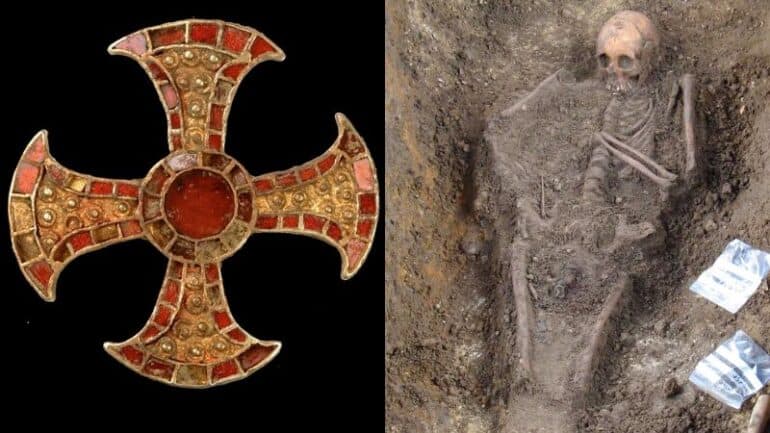Archaeology studies the ancient and recent human past through material remains.
It combines a deep understanding of history with sophisticated scientific techniques to provide detailed insights into ancient civilisations.
Click and listen the full episode below:
On today’s episode of The Science Briefing, Dr Sophie Calabretto and Cosmos journalist Matthew Agius discussed what they actually do and what we have been digging up recently.
In the UK, archaeologists have recently discovered four bodies associated with a rare bed burial practice near Cambridge.
Four bodies, including that of a 16-year-old girl, were found buried over 1300 years ago, along with an incredibly rare gold and garnet cross (the ‘Trumpington Cross’).
“She’s only one of the 18-bed burials ever found in the UK. She was also found with a gold and red cross, which was likely sewn into her robe, and the cross is extremely rare,” Agius said.
He said archaeologists analysed very ancient tissue samples to see the ratios of carbon and nitrogen to determine diet composition and change.
“A high level of nitrogen might suggest a diet that is rich in animal protein, while a lower ratio could predominantly be a plant-based diet,” he said.
This technique allows researchers to bridge the gap between scientific analysis and historical context, building connections to individuals who lived centuries ago.
“This is an important thing that allows us to use science to piece together this historical context that we might find human remains.”
Introducing The Science Briefing: a podcast about the science of everything and your new go-to podcast for your snapshot of science news. Hosted by Dr Sophie Calabretto and featuring journalists from Cosmos Magazine. Hear it on the LiSTNR app now.
